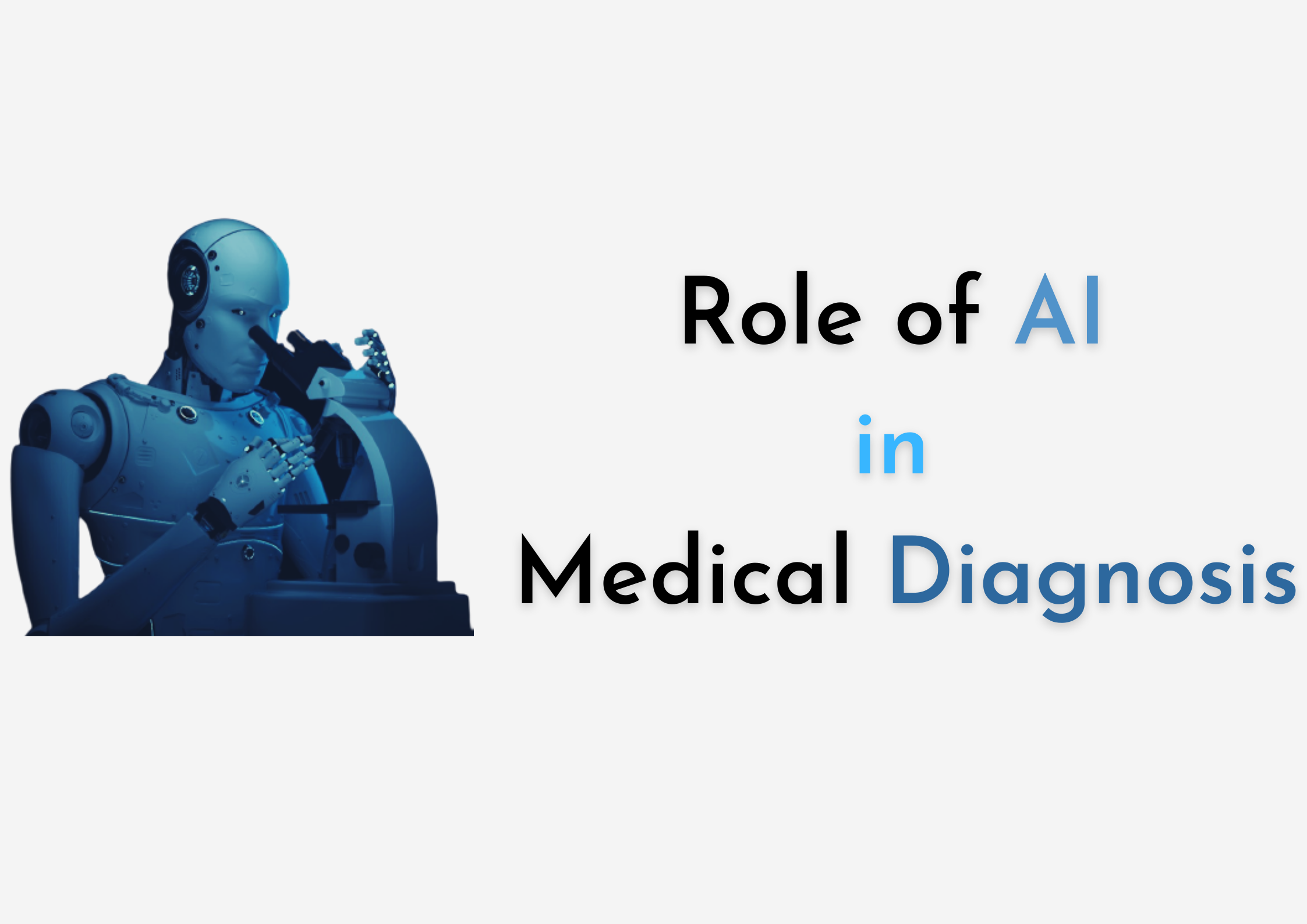
AI’s Growing Role in Healthcare: From Diagnosis to Personalized TreatmentAI’s Growing Role in Healthcare: From Diagnosis to Personalized Treatment Introduction Artificial Intelligence (AI) is rapidly transforming the healthcare industry, revolutionizing the way diseases are diagnosed, treatments are administered, and personalized care plans are developed. AI’s capabilities are expanding rapidly, with applications spanning from medical imaging analysis to drug discovery and personalized treatment optimization. Diagnosis and Disease Detection AI algorithms can analyze vast amounts of medical data, including patient records, imaging scans, and genetic information, to identify patterns and detect anomalies. This technology is used for early detection of diseases like cancer or heart conditions, allowing for timely intervention and improved patient outcomes. AI-powered diagnostic tools have also proven effective in detecting rare and complex diseases that may be difficult to identify through traditional methods. Personalized Treatment Plans AI can analyze an individual patient’s medical history, genetic profile, and other relevant factors to create personalized treatment plans. This tailored approach considers the patient’s unique health needs and optimizes their care regimen. AI algorithms can also predict treatment responses and identify potential adverse effects, further personalizing the treatment process and improving patient safety. Drug Discovery and Development AI is accelerating drug discovery and development pipelines. It can analyze vast chemical databases and simulate molecular interactions to identify potential drug candidates. AI can also predict the efficacy and side effects of new drugs, reducing the time and cost associated with traditional clinical trials. Medical Imaging and Interpretation AI algorithms can analyze medical images, such as X-rays, CT scans, and MRIs, with increased accuracy and speed. This technology assists radiologists in identifying abnormalities, detecting subtle changes in tissue, and quantifying medical images for more precise diagnoses. AI-powered image analysis is particularly valuable in specialties like radiology and pathology. Remote Patient Monitoring AI-enabled devices and sensors can monitor patient health remotely, allowing for continuous data collection and early detection of health issues. These devices can track vital signs, such as heart rate, oxygen levels, and glucose levels, and send alerts if abnormal values are detected. Remote patient monitoring facilitates early intervention, reduces the need for hospital visits, and improves patient outcomes. Challenges and Future Directions While AI’s transformative potential in healthcare is undeniable, there are certain challenges that need to be addressed. Ethical considerations, such as data privacy and algorithmic bias, must be carefully managed. Collaboration between healthcare professionals, technologists, and policymakers is crucial to ensure responsible and equitable implementation of AI in healthcare. Conclusion AI is playing an increasingly vital role in healthcare, from disease diagnosis to personalized treatment optimization. Its capabilities continue to expand, promising even greater advancements in patient care. As AI technology matures and ethical considerations are addressed, it will undoubtedly reshape healthcare delivery, empower patients, and revolutionize the way we approach health and well-being.
Posted inNews